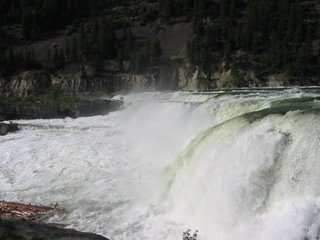Media In-Accuracy
Remember the six imams escorted off the plane in Minneapolis? What I remember is the media outcry over civil rights violations. Well, Scott has sorted through the media coverage. Is it really all that amazing that the mainstream media hasn’t bothered to go back and check all this information?
Reuters originally posted the story on aRussian-North Korean deal for unranium. The AP, via the NY Times grabbed it after that. The talks have supposedly been going on since 2002. Only now the North Koreans want support at the negotiating table over sanctions. And, all of it is based on a report by the Tokyo Shimbun, a regional Japanese newspapaer with a circulation of over half a million, per Wikipedia. Where and why did they get it? I couldn’t figure it our, based on internet searching. But, what this? In a big surprise, Reuters is now reporting the Russians know nothing about it—or at least aren’t commenting.
(…and we are supposed to believe…what?...)
On the subject of Wikipedia, just how trust worthy is it? Given the NY Times report on attempts to manipulate Google data, why should we believe what we read at Wikipedia? Take a look at the differences between the >English and some foreign versions, and they have radically different information. Since Wikipedia is “an open encyclopedia founded in 2001 that allows ordinary users to create and edit the vast bulk of its entries, what is to stop this sort of information control?
Which brings us around to the wonderful discussion of the AP and alleged burning of six Sunnis. Michelle malkin has a long read on the subject. As usual, she backs it up with the links to source documents. Check out the Jules Crittendon video at Hot Air. He once again raises the point, via the Bilal Hussein situation, that the media holds itself to a different standard than every one else.
Flopping Aces had to waste his time last night debunking another attempt by the AP to avoid accountability—this one came from the NY Times. The only encouraging thing is the MSM is putting this in print. Hopefully that means more people will go fact checking—as opposed to taking at face value. My take on the Times article was it spent more time on getting attention away from the AP and issue than it did addressing the original inaccuracies.
So, I’ll ask the question: how can you claim to be about rights and freedoms, when everyone else’s suffers so you can be without oversight? Of course, the media has an answer for those who are trying to hold media accountable. Rotty Pup has a great take on this BBC article supporting a “code of conduct” for Bloggers. Not willing to police itself, the media wants government to police those holding it accountable.
What a “worthy” solution!




|